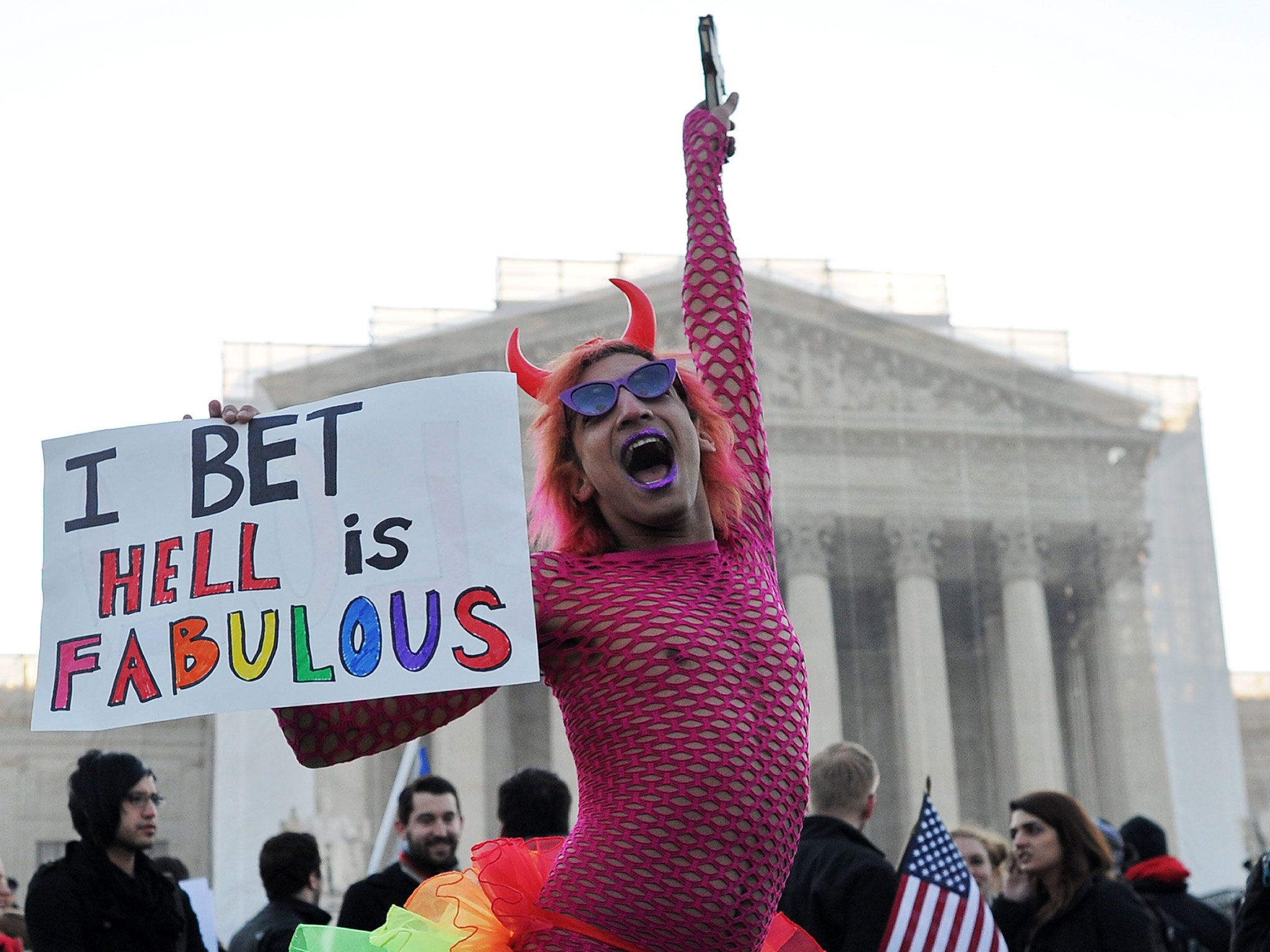California gay marriage ban: wary justices begin historic hearings
Proposition 8, backed by Californian voters, banned gay marriage after the state allowed it

Your support helps us to tell the story
From reproductive rights to climate change to Big Tech, The Independent is on the ground when the story is developing. Whether it's investigating the financials of Elon Musk's pro-Trump PAC or producing our latest documentary, 'The A Word', which shines a light on the American women fighting for reproductive rights, we know how important it is to parse out the facts from the messaging.
At such a critical moment in US history, we need reporters on the ground. Your donation allows us to keep sending journalists to speak to both sides of the story.
The Independent is trusted by Americans across the entire political spectrum. And unlike many other quality news outlets, we choose not to lock Americans out of our reporting and analysis with paywalls. We believe quality journalism should be available to everyone, paid for by those who can afford it.
Your support makes all the difference.While gay rights supporters joined hands outside the US Supreme Court today amid an atmosphere of hoopla and high hopes, oral arguments inside in the case of Proposition 8 banning gay marriage in California suggested a bench of justices still wary about making any kind of sweeping ruling on the issue.
Proponents of overturning Proposition 8, a constitutional amendment backed by Californian voters in 2008 that banned gay marriage months after the state’s own Supreme Court had allowed it, are hoping for a broad decision from the justices in late June that would force not just California but all 29 states currently with gay marriage bans to rescind them.
Tomorrow the court will hear arguments in a second case involving the constitutionality of the Defence of Marriage Act, DOMA, which defines marriage as between a man and a woman at the federal level. Former US president Bill Clinton has this month expressed remorse for having signed it into law in 1996 when he was seeking re-election for a second term. He now says it was a violation of the US Constitution.
Crucially, Justice Anthony Kennedy, considered a liberal and a likely swing vote on the issue, expressed reservations about taking the court into “uncharted waters” on gay marriage. “We have five years of information to pose against 2,000 years of history or more,” he said.
Nor was Justice Kennedy impressed when Theodore Olson, the lawyer for plaintiffs seeking to overturn Proposition 8, countered that the court had no trouble entering uncharted territory in 1967 when it struck down bans on interracial marriages in America. Kennedy said by then many other countries had had experience of interracial marriages for hundreds of years.
As ever, reading meaning into the questions put by the justices is perilous. In another exchange with lawyers arguing in favour of retaining the California ban, Kennedy asked about the roughly 40,000 children being raised by gay and lesbian couples in the state. “They want their parents to have full recognition and full status. The voice of those children is important.”
The justices could simply dismiss the case which would result in the Proposition 8 being overturned in California but with no consequence for any other states with bans. They may, however, balk altogether and say the case should not have been brought which will let the ban stand and nothing will have changed.
Among those suggesting that the issue was too novel for the court to handle was Justice Samuel Alito, who at one point noted that same-sex couples being allowed to marry is “newer than cell phones or the internet”.
Join our commenting forum
Join thought-provoking conversations, follow other Independent readers and see their replies
Comments